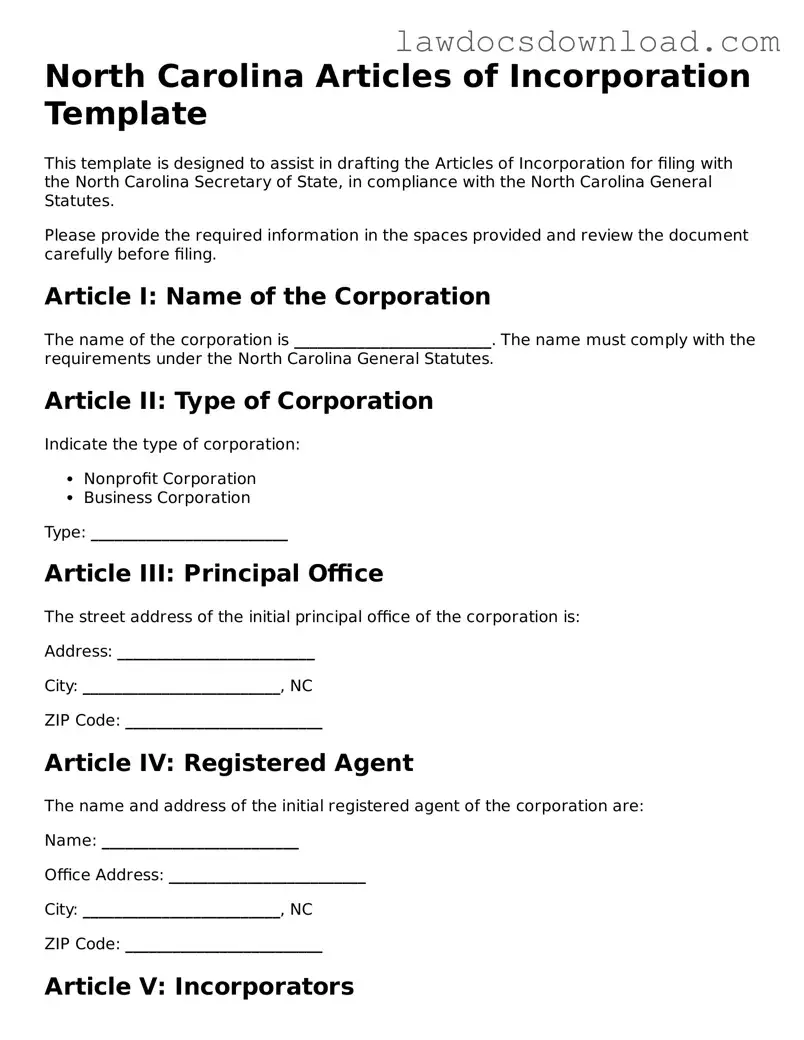Legal North Carolina Articles of Incorporation Form
The North Carolina Articles of Incorporation form serves as a crucial document for registering a corporation within the state. It details the foundational structure of the company, including its purpose, directors, and legal address. Required for legal recognition, this form is the first step for businesses to gain legitimacy and operate in North Carolina.
Launch Articles of Incorporation Editor Here

Legal North Carolina Articles of Incorporation Form
Launch Articles of Incorporation Editor Here

Launch Articles of Incorporation Editor Here
or
Free Articles of Incorporation
Get this form done in minutes
Complete your Articles of Incorporation online and download the final PDF.